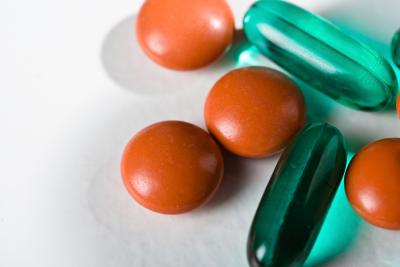Your body needs 13 vitamins to be healthy. However, women have nutritional needs that differ from those of men. Not only does a fairly active woman require fewer calories than a man her same age, but there are certain vitamins and minerals she needs more of to help reduce her risk of specific health problems.
Calcium/Vitamin D
The mineral calcium is needed for strong bones. Vitamin D helps the body absorb calcium. Both calcium and vitamin D can help active women reduce their risk of stress fractures. Increasing your exercise level makes stress fracture more common, especially if you do too much too fast. According to the American Academy of Orthopaedic Surgeons, more than one-half of all stress fractures occur in the lower leg. When your muscles become tired, they can’t absorb shock the way they should. The bone then takes the brunt of the force and this can cause a tiny crack. Depending on your activity level, you may need additional supplementation.
Iron /Vitamin C
Physically active women are often at higher risk of iron-deficiency anemia caused by increased loss of iron in sweat, loss of iron in the blood during menstruation, poor dietary intake or poor absorption of dietary iron. Women who exercise intensely aren’t always able to absorb as much iron into their body as they need. Some women also have decreased appetite when they exercise more. Although heme iron found in meats, poultry and fish is absorbed into the body better than non-heme sources, eating foods rich in vitamin C at the same meal can help your body absorb the mineral. Foods rich in vitamin C include oranges, grapefruit, most berries, cantaloupe, honeydew, pineapple, cauliflower, cabbage, broccoli and brussels sprouts.
B Vitamins
The body uses vitamin B12 to make proteins. While most women can get all the vitamin B12 they need from dietary sources, women who are vegetarians or vegans may not get enough of this essential nutrient without taking supplements or eating fortified foods. Several other B vitamins help the body use proteins, carbohydrates and fats for energy. The findings of a study published in the May 4, 2005. issue of the “Journal of the National Cancer Institute” suggest that vitamin B6 may help to prevent breast and colorectal cancers in women. Both vitamins B6 and B12 may also help to lower the risk of heart disease.
Vitamin K
Vitamin K plays a key role in building bone, and strong bones decrease a woman’s risk of developing osteoporosis. The vitamin also aids in the healing of bone fractures. While vitamin K deficiency can affect the blood’s ability to clot, it promotes the production of a protein known as osteocalcin in addition. However, more vitamin K is needed for healthy bones than what it takes for the body to produce blood-clotting proteins.





